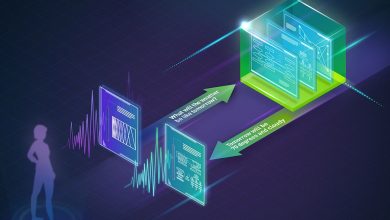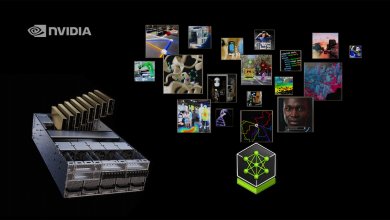New Global Research from Workday Reveals AI Will Ignite a Human Skills Revolution
Study Finds That Uniquely Human Skills Are More Vital Amid Increasing AI Adoption: Relationship Building, Empathy, Conflict Resolution, and Ethical Decision-Making

Workday, Inc today published a new global research report “Elevating Human Potential: The AI Skills Revolution,” which looked at AI’s impact on jobs. The findings challenge the narrative that AI will replace humans, revealing instead that AI will be a catalyst for a skills revolution where uniquely human capabilities like empathy and ethical decision-making become the most valuable assets at work. This global shift is not just about embracing new technology, it’s about elevating human potential, fostering uniquely human skills, and redefining what it means to thrive in the age of AI.
While the rapid evolution to AI-powered agents stands to have a large impact on jobs, with many fearing it will lead to diminished roles or even unemployment, this research points to a more optimistic future.
- The most active users of AI are most optimistic about its benefits, with a sentiment score of 4.23 out of 5, while those planning to adopt AI within the next 12 months show the lowest optimism with an average score of 3.89 out of 5.
- AI helps free up human capacity for more meaningful work, with 93% of active AI users in agreement that AI allows them to focus more on higher-level responsibilities such as strategy and problem solving.
- Although there are societal concerns about AI damaging trust, 90% of workers agree AI can play a significant role in increasing transparency and accountability in organizations, with leaders (92%) and employees (89%) closely aligned.
- Where employees and leaders disagree is on the growing need for human connection in the age of AI. 82% of employees think it’s needed, while only 65% of managers agree.
- Uniquely human skills such as ethical decision-making, empathy, relationship building, and conflict resolution are viewed as critical for success in an AI-driven economy.
“The conversation around AI often focuses on fear and job loss, but we see it as an incredible opportunity,” said Jim Stratton, chief technology officer, Workday. “By embracing AI for good, we can elevate what makes us uniquely human – our creativity, our empathy, our ability to connect – and build a workplace where these skills drive success. Our research shows that workers are ready to embrace this possibility as reality.”
The Human Advantage in the Age of AI
According to the research, 83% of respondents believe AI will both elevate the importance of uniquely human skills and enhance human creativity, leading to new forms of economic value.
This signals a growing positive sentiment around the adoption of AI in the workplace, with earlier Workday-commissioned research on AI finding only 52% of workers welcomed AI in their workplace at this time last year.
Today, these findings underscore the critical need for uniquely human skills like creativity, leadership, learning, trust, and collaboration to thrive in an AI-powered world. This pivotal moment, where we collectively recognize AI’s transformative role in the future of work and the enduring importance of uniquely human skills, is leading to an AI-driven skills revolution that stands to impact everyone in some capacity from factory workers to data analysts.
“AI is driving us towards a future where we can harness our innate human skills to connect, create, and innovate,” said Sadie Bell, VP of People Systems, HPE. “This isn’t just about efficiency and problem-solving; it’s about unlocking our potential to build a future that prioritizes skills like empathy, ingenuity, and our shared humanity.”
Of those actively utilizing AI, nearly all (93%) agree that AI allows them to focus on higher-level responsibilities such as strategy and problem-solving. What’s more, active AI users consistently have positive perceptions of its benefits, with 92% of employees and 95% of leaders in agreement. These findings highlight the transformative potential AI can have in the workplace by helping to free up human capacity for meaningful and innovative collaboration, which will unlock new ideas and opportunities for businesses to adapt and grow in a rapidly shifting economy.
Where Uniquely Human Skills Reign Supreme
AI is already reshaping the workplace. 81% of participants in the study recognize that AI is changing the skills required for their jobs. The top three uses of AI today include data analysis (51%), fraud detection and security monitoring (43%), and HR and recruiting (39%). And while some will need to develop new skills in order to use AI at work, they’ll also need to continue cultivating uniquely human skills in order to succeed. In fact, the data reveals a clear trend: human-centric skills are becoming more vital in the face of increasing AI adoption.
“In 2025, AI will play an important role in unlocking efficiencies in how People teams operate, but it won’t replace the essential human elements, like empathy, communication and relationship building,” said Jennie Rogerson, global head of people, Canva.
The skills deemed least likely to be replaced by AI are also considered the most valuable at work: ethical decision-making, connection and relationship building, emotional intelligence and empathy, and conflict resolution. Across multiple scenarios, ethical decision-making consistently ranked the most valuable human-centric skill, both today and in a future shaped by full AI adoption.
The Disconnect on Human Connection: Leaders Must Act
A stark disparity is emerging between employees and leaders regarding the essential need for human connection in the workplace. While 82% of individual contributors believe the craving for
human interaction will only intensify as AI usage increases, 65% of managers share this view. This disconnect presents a critical opportunity for leaders to actively prioritize fostering genuine human connection and building strong relationships within their teams.
When asked how AI adoption will impact leadership and management priorities, respondents identified three key areas: enhancing data-driven decision-making, prioritizing upskilling and learning to use AI technology, and reallocating resources to more critical areas as AI automates routine work. The equal weighting across these responses underscores AI’s potential to assist leaders in each of these critical areas, freeing them to focus on cultivating empathy and deeper connections within their teams.
Working Together to Build Trust
AI is revolutionizing the workplace, with 90% of workers agreeing it can enhance organizational transparency and accountability. However, this success cannot be achieved without a joint commitment to responsible AI. The data reveals there is a widespread expectation, with 54% agreeing that the technology sector will lead efforts to ensure transparency and accountability in AI integration. However, the shared responsibility attributed to individual organizations (12%) and governments (12%) reflects a broader sentiment that gaining trust in AI requires collaboration across sectors.
Tech companies, organizations, and governments must work together to ensure AI benefits everyone. This collaboration will create a future where humans and AI partner to achieve more than either could alone.
For additional information:
- Download the report: Elevating Human Potential: The AI Skills Revolution.
- Learn more about Workday’s approach to responsible AI here.
- Read about Workday Illuminate™ – the next generation of Workday




